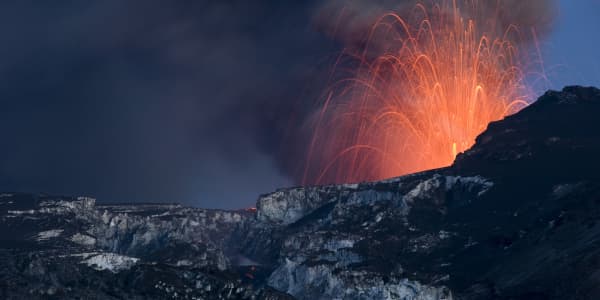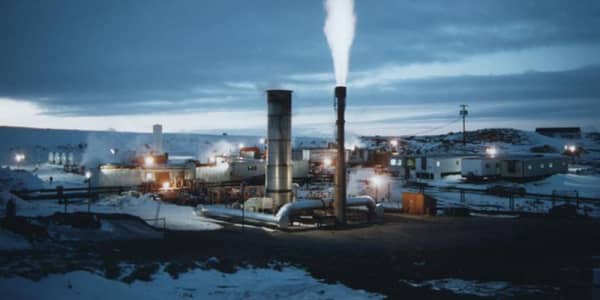Wal-Mart, the World Wide Web and fracking.
Each has arguably been a game changer for the global economy. And as CNBC searches for the 25 most influential leaders of the past 25 years, the men behind each of these weren't on the original list of 200 contenders but readers have poured into the comments section to argue that they should be. (Click here to see the comments and to cast your votes for the top 25.)
Here's a look at some of the most popular write-in votes for the most influential leaders of the past 25 years:
Sam Walton, founder of Wal-Mart
Sam Walton changed the retail landscape with a simple idea: Low prices. He wanted to be the go-to place for steep discounts for small-town consumers. He bet that volume would allow the retailer to get suppliers to cut costs—and boost Wal-Mart profits in the process.
Other retailers laughed at the idea when he first proposed it but today, Wal-Mart has more than 1,700 stores and is the world's largest retailer, with a market cap of $235 billion. He was big on customer satisfaction, improving distribution to keep store shelves stocked with what customers wanted. He was also big on employee morale, installing bonus and profit-sharing plans.
(Read more: Casting doubt on Oprah's influence)
"How can you leave a person like Sam Walton off this list?" a reader asked. "Walmart permeates the entire world these days. It changed the entire face of the retail business."
Walton stepped down as Wal-Mart CEO in 1988—26 years ago, which technically disqualifies him from CNBC's contenders list. (Click here for the list's criteria here.)
But his advocates say he was still influential—even after he stepped down as CEO.
"Sam Walton was still in charge 25 years ago," said Michael Bergdahl, who worked closely with Walton and wrote three books about him and his legacy. "He stepped down as CEO but not as chairman. He was actively involved, and he couldn't take his foot off his gas pedal."
As chairman, Walton ran the shareholders' meetings and kept an office next to David Glass, who succeeded him as CEO, Bergdahl said. "He had a co-CEO kind of attitude. He ate, lived and breathed Wal-Mart until the very end. ... His legacy continues to linger and it will continue to linger 50 years from now. "
Tim Berners-Lee, inventor of the World Wide Web
Tim Berners-Lee is actually the reason you're reading this right now.
The British computer scientist invented the World Wide Web as a way to share information between scientists in universities and institutes around the globe, but it quickly became available for anyone to use. While Berners-Lee did not invent the Internet, his invention made the Internet searchable and accessible.
(Read more: Forget Steve Jobs and Bill Gates—tech names you should know)
Without the Web, Facebook and Twitter wouldn't exist. So why wasn't Berners-Lee on the list?
"He's not visible, and people aren't necessarily familiar with his name," said Leslie Horn, a tech reporter for Gizmodo. But his contribution is too big to disregard, she said.
"Tim Berners-Lee is the godfather of the Web," Horn said. "His contribution allowed people to actually use the Internet in a way that makes sense, and it helped businesses. Look at Amazon and all the billions of dollars it generates thanks to the Web. That's all thanks to him."
George P. Mitchell, the 'father of fracking'
Readers also felt that a big name in energy should be on the list—George P. Mitchell.
Mitchell, who died last year at the age of 94, was a Texas oilman who is often referred to as the "father of fracking" because he came up with the groundbreaking technique that unlocked natural gas and oil from thousands of feet below the earth's surface.
This led to an unexpected natural gas boom in the U.S.
(Read more: Is Jamie Dimon the most influential on Wall Street?)
"Without George Mitchell, oil prices would be much higher. The U.S. oil imports would be going up instead of down, and U.S. manufacturing would not be on the rebound," said Daniel Yergin, energy expert and Pulitzer Prize-winning author. "We would be a lot more worried about energy security and a lot more worried about the Middle East."
Yergin even sent a letter to President Barack Obama recommending Mitchell for the Presidential Medal of Freedom. (He didn't, however, receive the award.)
Mitchell's contributions were "the most positive thing that has happened to the U.S. economy since the beginning of the recession in 2008. You don't get a much bigger footprint than that," Yergin said.
Click here to cast your votes for the top 25 most influential leaders of the past 25 years. Your favorites not on the list? Drop them in the comments below—and tell us why.
—By Silvana Ordoñez. Folllow her on Twitter @newsdumonde.





